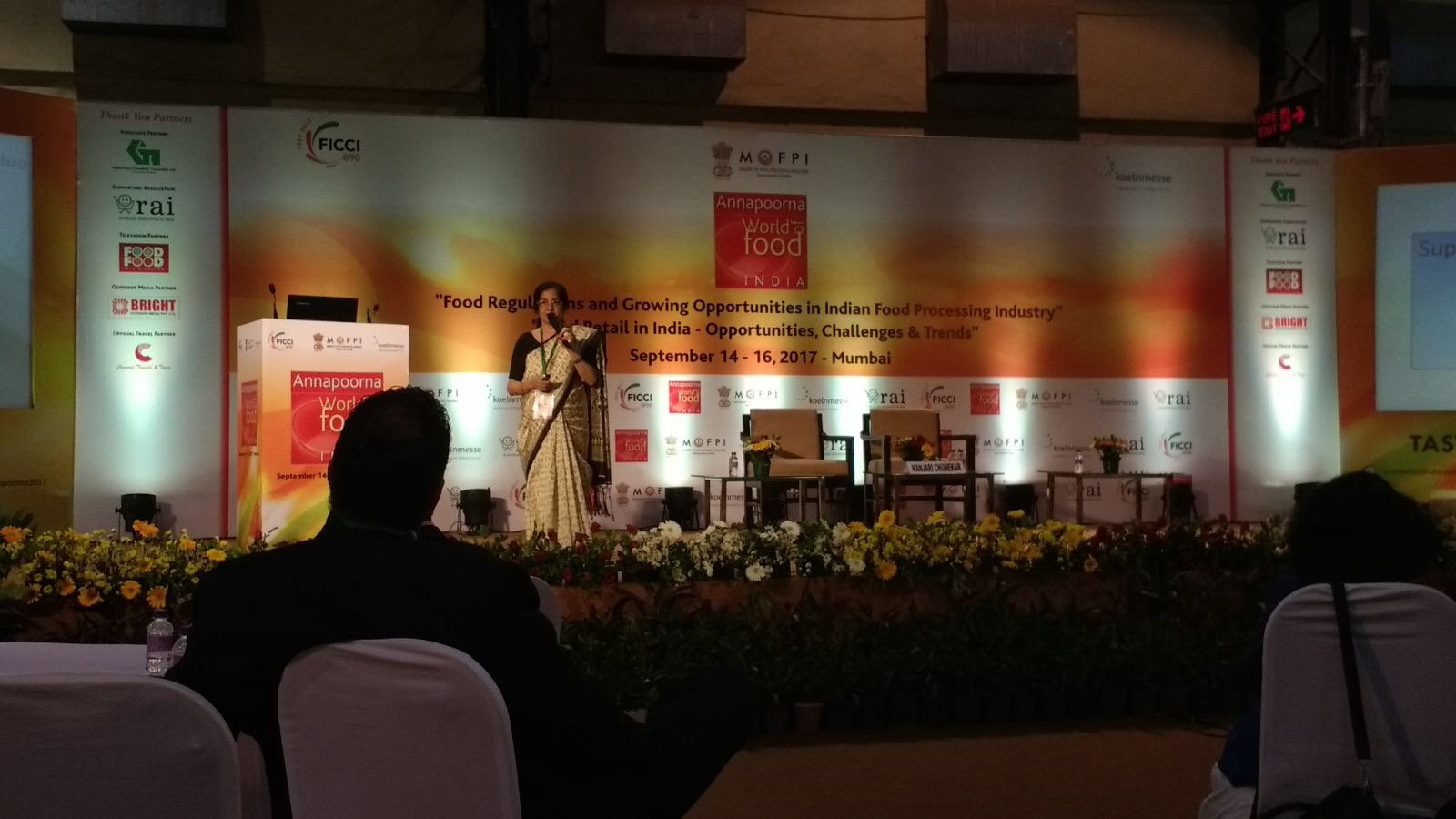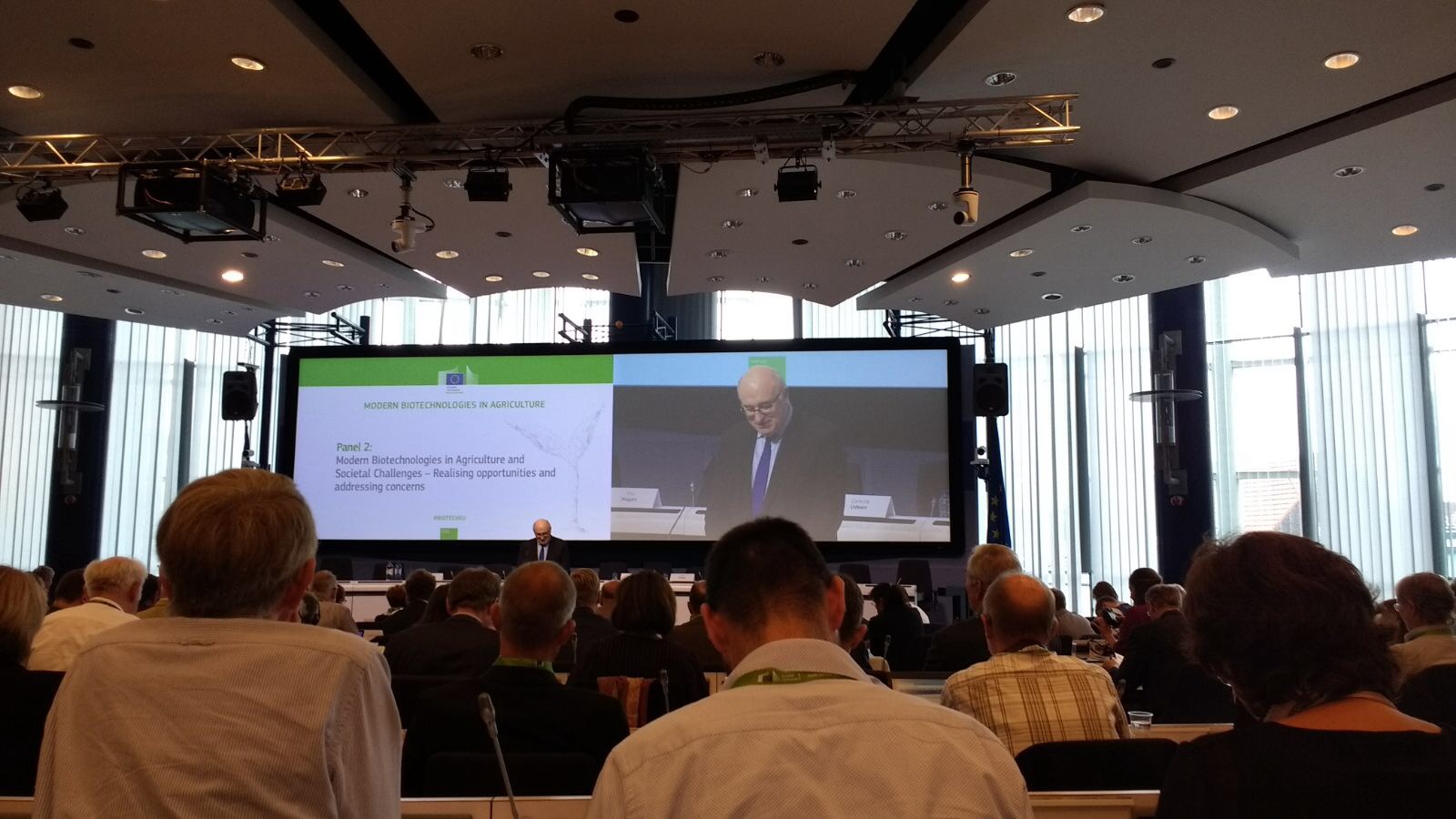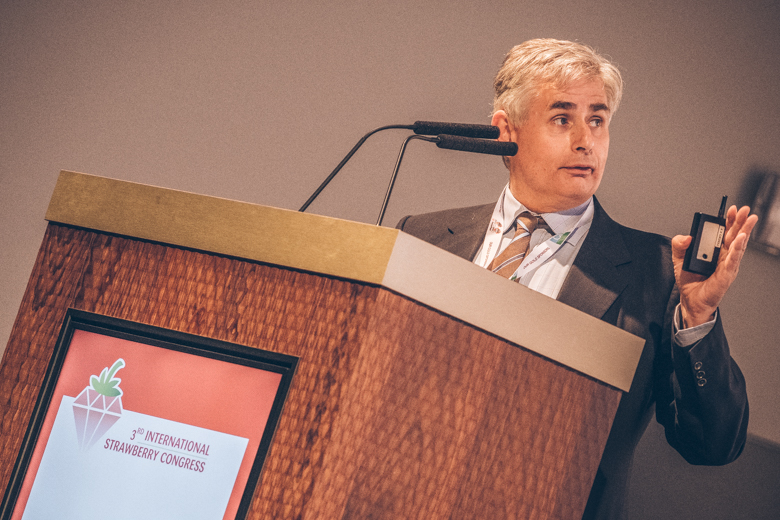
Freshfel Headlines – number 5 / 2017, covering news from August and September 2017
Freshfel Europe at the Third International Strawberry Congress in Antwerp
The third International Strawberry Congress took place in Antwerp (Belgium), on 6-8 September 2017. The congress was a unique opportunity for more than 300 business leaders in the international market and scientists to network and share their insights and opinions on the future of strawberry production and trade. Organized by Hoogstraten, it was also supported by VBT, VCBT and the Hoogstraten Proef Centrum (Strawberry Research Station)
On this occasion, Philippe Binard, General Delegate of Freshfel, presented an overview of the production, trade and consumption trends for strawberry from a European perspective in a global context. The trends for strawberry were additionally analysed compared to other berry products and within the overall fruit category.

Freshfel paper on the impact of Brexit on the European fruit and vegetable industry
In August Freshfel drafted and submitted to the task force on Article 50 its impact assessment on the potential pitfalls and bottlenecks for the European fruit and vegetable industry. The U.K. is dependent from fruit and vegetable imports, and receives more than 55% (3.1 million T) of its total F&V imports from the EU mainland. Any deviation from the Single Market conditions will lead to costly and timely effects on the trade flows between the U.K. and the EU. Among the most challenging areas identified will be: the clarification of new import tariff regimes and potential quota requirements, the reorganisation of border procedures and customs operations including capacity building of the ports to absorb new border control procedures, general logistical constrains, customs management, transhipment procedures and the scope of official controls and plant health requirements. Certification and administrative challenges will come on top of these bottlenecks. To maintain the competitiveness of the EU fruit and vegetable industry, it is of utmost importance, that trade-disruptive impacts remain at a minimum level. Therefore, ideally, business would have to only adapt to one set of changes for the above mentioned areas and maintain the status quo until then.
The full paper is available to read here.

Freshfel presence at Food and Beverage Fair ‘Annapoorna World of Food Mumbai’
Freshfel represented the European fresh fruit and vegetable industry at the European Pavilion under the banner of its promotional slogan ‘Enjoy it’s from Europe’, at the 12th edition of the Indian food fair ‘Annapoorna World of Food India’ in Mumbai from the 14-16th September 2017. Annapoorna World of Food India, organised by Koelnmesse YA Trade Fair Pvt. Ltd., in partnership with the Indian Chamber of Commerce and Industry, is the most important international sourcing fair for the food and beverage trade, catering and retail markets in India and neighbouring countries, and this year gathered over 200 exhibitors from 23 countries. For the first time this year there was a European Pavilion, which was organized by the EU delegation to India. The objective of this pavilion was to promote EU food and food standards, raise visibility of EU products, as well as to facilitate business to business contact between European and Indian companies. Freshfel’s stand displayed promotional material, flyers and brochures from its members.
Freshfel also participated in several workshops to better understand the structures of Indian supply chains and retails markets, and the Indian food labelling legislation. Several experts gave an insight into how the market in India is developing, specifically focusing on the development of ‘Mega Food Parks’, complexes where all food processing and related business are grouped together to facilitate the processing of India’s raw products. Additionally, both the EU delegation and Koelnmesse organized a gala dinner on the evening of the 14th and 15th September, which provided networking opportunities for invitees.
The full press release on Freshfel’s participation at the fair is available to read here.

Launch of campaign promoting products from Ultra Peripheral Regions
Upon invitation of UGPBAN (L’Union des Groupements de Producteurs de Bananes de Guadeloupe et Martinique), Freshfel General Delegate Philippe Binard was asked to present the key data of the European fruit and vegetable market at the launch of their campaign promoting products from Ultra Peripheral Regions on the 21 Sepember 2017. This presentation was done as a background to the progressive launch of a 3.3 Mio € promotion programme co-financed by the EU. The campaign is aimed at promoting the quality of produce originating from Ultra Peripheral regions of the EU, in particular the Canary Islands, Madeira, Guadeloupe and Martinique. The campaign will run from 2017 to 2019 and will showcase an exhibition on the quality assets of several exotics products from these regions in different markets under the motto “Exotics taste from Europe”. The campaign will target France, Spain, and Portugal in addition to Belgium, Germany and Poland.

Freshfel Europe participates in food waste measurement and accounting meetings
This last month has been all about food loss and food waste in the circular economy with Freshfel attending two high level meetings on food waste measurement and accounting. On the 25th September Freshfel attended the EU Platform for Food Loss and Food Waste’s Subgroup on Food Waste Measurement meeting in Brussels. This second meeting of the Subgroup focused on developments in Member State measuring and reporting on food waste. In particular, Belgium (Flanders), Austria and Spain presented their current methods and findings, which were discussed in conjunction with presentations on food waste measurement methodologies from Norway, FoodDrinkEurope (Nestle), and Eurostat. Of note, members of the Subgroup agreed that uncertainties in methodologies should be stated upfront to acknowledge precision and aid comparison across Member States. An additional observation among members was that while work still needed to be done to find a best practice consolidated framework for food waste accounting that was both accurate and efficient, strong progress was being made by Member States to achieve this.
The following day Freshfel participated in a workshop on food waste accounting hosted by the European Commission’s DG Joint Research Centre. This workshop aimed at sharing perspectives on food waste quantification on a European scale, highlighting current opportunities and challenges to improve food waste quantification and ensure better decision support in relation to food waste reduction and valorisation. In particular, presentation were made on the use of material flow analysis in food waste quantification, the challenges of estimating solid and liquid food waste and the alternative potential of using input-output tables in supporting food loss and waste quantification among others.


Freshfel Europe at the WTO Public Forum
The Freshfel secretariat joined a delegation of CELCAA to participate in different events on the occasion of the annual WTO Public Forum which took place in Geneva from 26-28 September. The delegation covered most of the agricultural products, including fruit and vegetables, potatoes, cereals, meat, dairy, wine, sugar, dry food, flowers and tobacco leaves. The Forum was prepared as a background to the upcoming Eleventh Ministerial Conference (MC11) of the WTO, which will take place from 10-13 December 2017 in Buenos Aires, Argentina.
The CELCAA delegation held a number of bilateral meetings during the event, including among others with the Mission of the EU, the UK, France as well as the USA, Brazil and New Zealand. Meetings with the WTO secretariat, namely the department in charge of SPS and TBT matters, was also organized.
This was an excellent opportunity for networking for the business delegations with different public stakeholders on matters relating to the functioning of WTO, but also on the (limited) expectation for the MC11 focusing primarily on domestic support. The implication of Brexit was also discussed at length, demonstrating once again the complexity of the process.

coolignEU Breakfast Debate at the European Parliament
This month on the 26th September Freshfel attended the coolingEU Breakfast Debate at the European Parliament in Brussels entitled “No clean energy system without clean cooling” hosted by MEP Martina Werner (S&D). The coolingEU forum is a platform for stakeholders to advocate for a more efficient and cleaner cooling supply, to which Freshfel is a member. During the Breakfast Debate a dynamic exchange of perspectives and ideas between policy-makers, academia, industry stakeholders, local policy makers and NGOs was held on the following topics: making cooling in Europe cleaner and more efficient; raising awareness of efficient and clean cooling; collecting data on cooling supply and demand; facilitating research and innovation for cleaner and more efficient cooling, and ensuring that the importance of cooling is reflected in EU policy making. At the event, coolingEU’s latest publication ‘Cooling Sector Profiles’ was also launched. This most recent publication by coolingEU illustrates the variety of use of cooling throughout different industry sectors, for example the European fresh fruit and vegetables sector to which Freshfel contributed.

Freshfel Europe attends SUSFANS 3rd Stakeholder Core Group Workshop
On the 28 September Freshfel attended the third Stakeholder Core Group (SCG) Workshop for the Metrics, Models and Foresight for European SUStainable Food And Nutrition Security (SUSFANS) research project in Vienna, Austria. This third SCG Workshop aimed to receive feedback from the SCG, of which Freshfel is a member, on the feasibility of the project’s latest scientific developments. The SCG was also presented with the project’s progress on sustainability assessment and metrics and innovation pathways. Freshfel additionally participated in the working group discussion on meat and dairy products, evaluating their part in the circular economy in relation to that of fresh produce. SUSFANS’ overall objective is to build a conceptual framework, an evidence base and analytical tools for underpinning EU-wide food policies with respect to their impact on consumer diet and their implications for nutrition and public health in the EU, the environment, the competitiveness of the EU agri-food sectors, and global food and nutrition security.

Conference: Modern biotechnologies in agriculture – paving the way for responsible innovation
On 28 September 2017, the European Commission organised a conference on ‘Modern Biotechnologies in Agriculture’ to hold an open debate about how modern biotechnology and innovations in plant breeding techniques can benefit European agriculture, and how this innovation and research can be undertaken in a responsible way, without compromising the EU’s high food safety standards. Invited were the relevant stakeholders in this debate: government experts and EU policy makers, researchers and scientists, industry stakeholders, and representatives of civil society.
Several high-level speakers, amongst which Commissioners Phil Hogan and Vytenis Andriukaitis gave key not lectures, which fed into the lively panel discussions afterwards. The panels focussed on the benefits of modern biotechnologies, the opportunities and concerns coming from society, and the way to promote those technologies and ensure their safe use. The debate with the audience focussed mainly on whether New Breeding Techniques should be falling under the GMO legislation.
At this point, scientists declare that the umbrella ‘new breeding techniques’ is not fitting, as this concerns a wide range of different techniques altering the DNA of the seeds. Proponents argue that these seeds should not be considered GMO as there is no foreign DNA being inserted, and therefore the plant could have developed these traits naturally over time. Opponents contend that they are ‘hidden GMO’s’. Freshfel was present during the conference, as the topic gains more and more traction and attention on a political level, with policy makers asking to move away from a GMO centred discussion.

